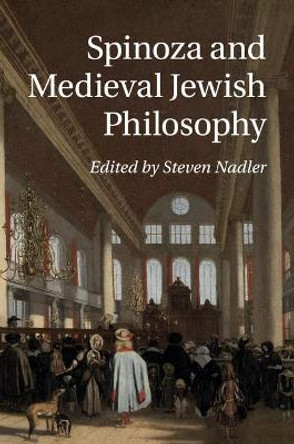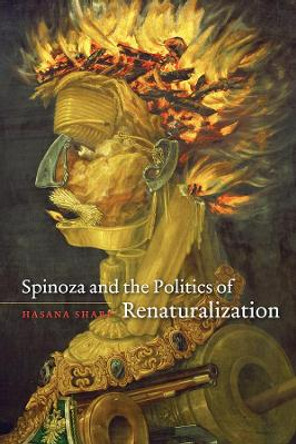Description
Finalist for Jordan Schnitzer Book Award for Philosophy and Jewish Thought 2023.
This book untangles a web of ideas about politics, religion, exile, and community that emerged at a key moment in Jewish history and left a lasting mark on Jewish ideas. In the shadow of their former member Baruch Spinoza's notoriety, and amid the aftermath of the Sabbatian messianic movement, the Spanish and Portuguese Jews of seventeenth-century Amsterdam underwent a conceptual shift that led them to treat their self-governed diaspora community as a commonwealth. Preoccupied by the question of why and how Jews should rule themselves in the absence of a biblical or messianic sovereign state or king, they forged a creative synthesis of insights from early modern Christian politics and Jewish law and traditions to assess and argue over their formidable communal government. In so doing they shaped a proud new theopolitical self-understanding of their community as analogous to a Christian state.
Through readings of rarely studied sermons, commentaries, polemics, administrative records, and architecture, Anne Albert shows that a concentrated period of public Jewish political discourse among the community's leaders and thinkers led to the formation of a strong image of itself as a totalizing, state-like entity-an image that eventually came to define its portrayal by twentieth-century historians. Her study presents a new perspective on a Jewish population that has long fascinated readers, as well as new evidence of Jewish reactions to Spinoza and Sabbatianism, and analyses the first Jewish reckoning with modern western political concepts.
About the Author
Anne Oravetz Albert is the Klatt Family Director for Public Programs at the Herbert D. Katz Center for Advanced Judaic Studies at the University of Pennsylvania.
Reviews
'The author has very intelligently approached the important question of Dutch Sephardi communal political consciousness in the seventeenth century by examining the community's constitution in the light of comments by a series of prominent lay leaders. She shows a good knowledge of the community sources and of the Spanish and Portuguese texts and provides a richly detailed analysis which is valuable and of considerable significance also in the context of other major Jewish communities in Western Europe, Italy, and the Ottoman Empire. Her work considerably enriches our perspective.'
Jonathan Israel, Institute of Advanced Studies, Princeton
'This work seeks to integrate three arenas that are usually dealt with separately: early modern European political thought, Portuguese-Jewish political and religious self-conceptualization, and Jewish messianism. The author is especially skilful in connecting the seventeenth-century Jewish authors she discusses with the concerns of modern and contemporary Jews.'
Miriam Bodian, University of Texas at Austin
'Albert draws on a wide variety of Jewish and non-Jewish religious and philosophical sources. Maimonides, Machiavelli, Justus Lipsius, Locke and Dutch republicans such as the de la Court brothers all make cameo appearances. She thereby provides us with a rich, original and illuminating perspective on this fascinating and consequential moment in Jewish history, which she justifiably regards as a 'watershed' moment in European political thought.' Steven Nadler, Literary Review
'Jewish Politics in Spinoza's Amsterdam takes readers on a compelling journey through the world of European politics, Jewish politics, and the manifold ways they intersected in the second half of the seventeenth century... This book will be of tremendous interest and importance to scholars of early modern Jewish history, and the broader history of European political thought in the seventeenth century, and promises to inspire future work in numerous exciting directions.' Benjamin E. Fisher, Studia Rosenthaliana
Book Information
ISBN 9781789622294
Author Anne O. Albert
Format Hardback
Page Count 400
Imprint Liverpool University Press
Publisher Liverpool University Press









